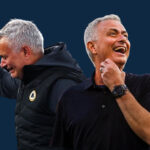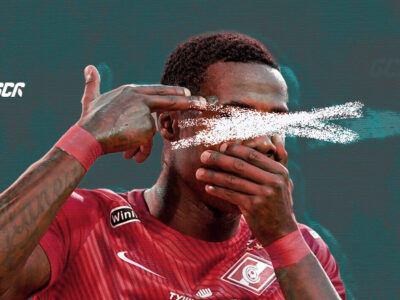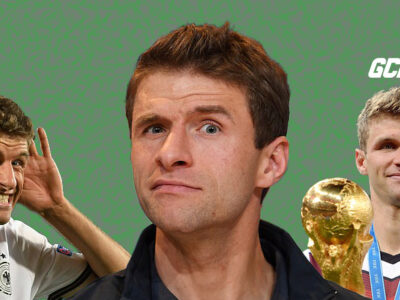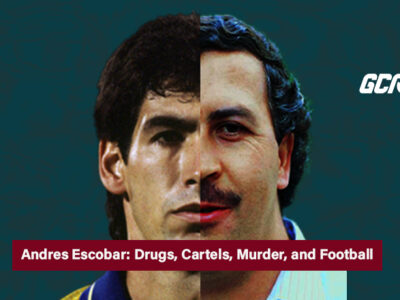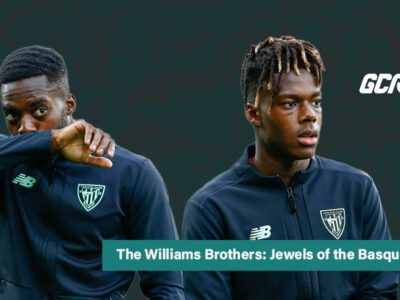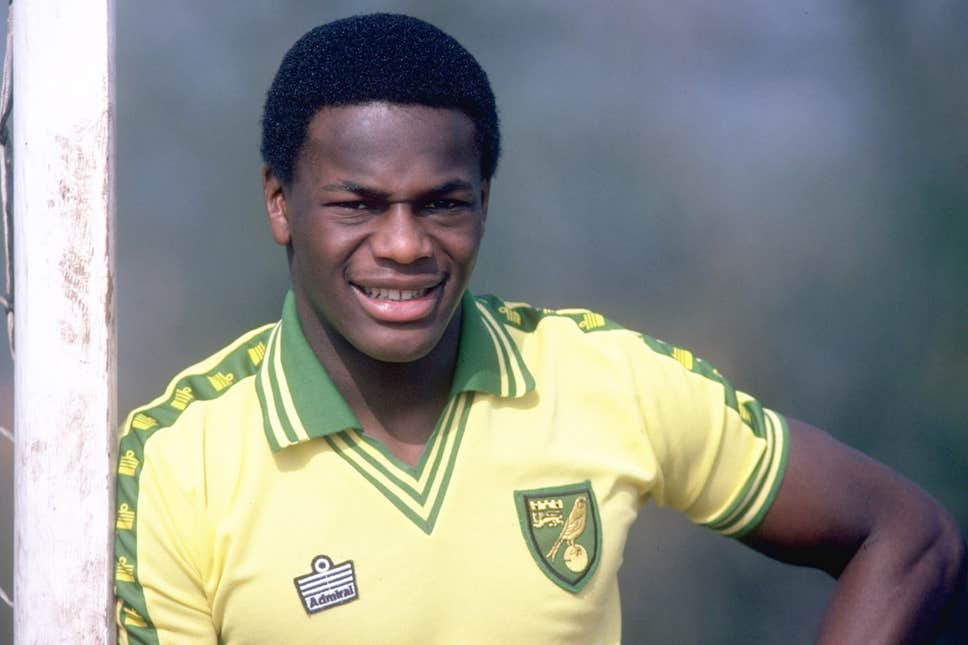Vibrant narrow streets running through decrepit favelas, rhythmic beats of samba, kids running around on sand beaches—this is Brazil’s legacy, the factory that churns out the most legendary attackers in world football.
From Pele to Ronaldinho and, most likely, Neymar, most Brazilian attackers retire right after they hit the peak of their brilliance. Once they hit 30, their levels take a nosedive.
Even Brazilian president Lula had to point this out, heralding Messi’s longevity in the game.
O Messi deveria servir de exemplo aos jogadores brasileiros. O cara com 36 anos, campeão do mundo, com Bola de Ouro e tudo. O Messi precisa ser inspiração de dedicação para essa molecada. Quem quiser ganhar Bola de Ouro tem que se dedicar, tem que ser profissional. Não combina…
— Lula (@LulaOficial) October 31, 2023
So, join me as I explore the enigma behind the premature curtain call for Brazilian attackers — from the physical toll of the sport to the pressures of fame and fortune.
Lace up your boots, and vamos lá!
Bright Flames That Burn the Fastest
Edson Arantes do Nascimento, or Pele, as you most likely know him, is an immortalized name in football. He is the GOAT.
The man was an enigma, his six goals helping Brazil win a World Cup trophy just one year after joining the hallowed ranks of international footballers. He even won the award for the tournament’s best young player in the 1958 World Cup.
Essa data nunca será a mesma para nenhum brasileiro ou para todos os fãs de futebol espalhados pelo mundo. Convidamos a todos para que expressem a sua mensagem de carinho nos comentários. O nosso Eterno 10 certamente estaria lendo todos vocês hoje. Vamos compartilhar o amor, como… pic.twitter.com/eYgvTmt2cK
— Pelé (@Pele) October 23, 2023
Fast-forward to 12 years, and Pele had already hung his boots on the international stage at the prime age of 30.
That may have happened decades ago. The tackles were horrific, and the playing conditions were horrid.
But what about Ronaldinho, the smiling assassin?
At the height of his powers, he was one of the few players I could confidently say had no haters.
I remember watching the Brazilian legend wiggle his foot like a worm at the end of a fisherman’s hook as Chelsea’s Carvalho stood, an enchanted fish taking the bait. A flick of the right foot, almost no back lift, and Petr Cech was picking the ball out of his net.
But like Pele, Ronaldinho’s career declined earlier than anticipated. The story behind his premature exit remains complex and elusive.
O bruxo & a intimidade! 🪄🔮⚽️
— Atlético (@Atletico) February 28, 2024
Que a sua quarta seja tão tranquila quanto o @10Ronaldinho com o controle de bola! 🤯😎 pic.twitter.com/v4Lh7q0a8c
This list could go on, starting with Ronaldinho, then Adriano, then Robinho, and most likely Neymar and Coutinho. The relentless glory hunting and the lure of the limelight take a toll on the most gifted Brazilian players.
The flamboyant lifestyle
Studying the most iconic Brazilian footballers who threw in the towel too early, I noticed an interesting similarity —- their lifestyles.
Messi should serve as an example to Brazilian players…anyone who wants to win the Ballon d’Or has to dedicate themselves; they have to be professional. It doesn’t go with partying, it doesn’t go with a night out.
– Lula, President of Brazil
For all their on-field brilliance, off-field challenges ultimately derailed their careers.
Adriano saw his career soiled by personal setbacks and legal troubles. Allegations linking him to a drug lord in Rio de Janeiro reveal the darker side of his post-football life.
Then, there’s the issue of his steadily declining mental health after he lost his father. The man went from scaring defenders with his sleekness and sheer power to scarring fans on Row Z.
Happy birthday to our idol, Adriano! 🎂❤️🖤 pic.twitter.com/uqTZrVzZPk
— Flamengo (@Flamengo_en) February 17, 2024
Despite his success with Inter Milan and potential comeback attempts, Adriano’s off-field issues lingered. Battles with depression and substance abuse overshadowed his talent and cut short what could have been a legendary career.
As for Ronaldinho — who I will always mention because his decline tugged at my heartstrings — a lavish lifestyle and partying certainly didn’t help.
His inability to refuse a chance to check out a salsa bar or wind down at a nightclub was fodder for the press. He was even seen in a nightclub by 3 AM when he had a match against Manchester United less than 24 hours later.
This contributed to a decline in form and focus in the latter stages of his career. Notorious for adding a contract clause allowing him to go clubbing, Ronaldinho danced himself to an early exit from the grand stage.
Lack of motivation
Many footballers experience a lack of motivation at some point, but I’m surprised at how often Brazilian superstars grapple with this issue.
Neymar is a prime example of Brazilians losing focus and drive amid fame and success. From domestic success to European dominance, Neymar was on track to becoming the best player in the world.
Despite the creativity coursing through his veins, I never really saw the motivation to dominate the world in Neymar’s eyes. The kind of motivation that made Ronaldo outscore Haaland at 38 — Neymar never had it.
Or he sometimes showed glimpses of that killer mindset. After rubbing shoulders with Messi and inspiring that famous 6-1 victory against PSG, Neymar’s journey has been marred by distractions.
There is a running gag in football meme groups about how Neymar mysteriously gets injured every year right before his sister’s birthday. While that sounds funny, I see how that must appear valid to the untrained eye.
His commitment to training and professionalism has also been questioned. Having conquered Europe multiple times, Neymar has all but abandoned any attempt at a long-term legacy in the sport.
Bad luck with injuries and other factors
Apart from the lack of zeal to keep pushing, injuries have disrupted the careers and potentials of many Brazilian stars.
Because the most exciting Brazilian footballers are often direct, flamboyant, and tricksters, defenders resort to the dark arts to stop them. These frequent fouls lead to subsequent injuries that take a toll on their bodies and careers.
🇧🇷⚡️ 12 years ago today, Alexandre Pato scored *THAT* goal vs Barcelona at the Nou Camp! pic.twitter.com/OaynT3WD0b
— EuroFoot (@eurofootcom) September 13, 2023
Alexandre Pato endured a promising start to his career before succumbing to a series of injuries that hampered his progress. Similarly, Ronaldo Nazario, one of the most talented strikers of his generation, battled recurring knee injuries and weight gain.
Philippe Coutinho and Neymar, known for their flair, often found themselves targeted by opponents. The unforgiving nature of the Premier League ensured that, like Hazard, Coutinho didn’t leave the league in the same physical state he arrived.
From the Vasco da Gama youth team to the Catalonian halls, Romario waltzed into the sights of football pundits and the hearts of fans. Despite his scoring prowess and World Cup glory, Romario’s legal issues and manager clashes overshadowed his achievements.
Essa assistência de Laudrup para Romário é sensacional. 👏👏pic.twitter.com/AypDdAGrTv
— Curiosidades Europa (@CuriosidadesEU) March 6, 2024
Grappling with controversies and personal demons, the Brazilian frequently clashed with coaches. Then you have his outspoken nature and infamous tears during a press conference.
Finally, the attempt to channel his inner Avatar Aang and communicate with spirit beings are glimpses of the life that derailed the 1994 FIFA World Player of the Year’s career.
Peaking too early
Robinho was once the next big star in Brazilian football. However, he couldn’t maintain consistency throughout his career.
After early promise at Santos, the young man didn’t take long to find a place at the Santiago Bernabéu, a height most footballers will only ever dream of.
Winning his first La Liga title in his second season saw the youngster hit the height of Spanish football at 22. I remember watching him against Malaga in 2005 and doubting what I just saw.
Jogar pela seleção no dia do meu aniversário é um grande presente e uma grande honra! Tmj👊 @diegoribas10 @marcosrocha2oficial #fabiosantos pic.twitter.com/AwI2uKKYYx
— Robinho (@Robinho) January 19, 2017
But that was the height of Robinho’s career. The only thing faster than Robinho skipping past his opponents was how quickly he peaked.
Moving to Manchester City and then Milan, Robinho’s intensity waned alongside his global relevance. The way I see it, the boy had flown too close to the sun, seen the gods, and no longer saw the need to keep proving himself.
Like Robinho’s case, the common narrative about Brazilian football players peaking too early is related to money.
The hype surrounding these young talents leads to exorbitant transfer fees, which in turn leads to higher expectations. This means these players barely replicate the levels that attracted that hype and cost. It’s something I call the 80-million Euro curse.
Cultural incompatibility
An often overlooked reason for the quick decline of Brazilian footballers is how different their style of football is from that of Europeans.
Brazilian football thrives on spontaneity and individual brilliance, guided by intuition rather than rigid playbooks.
It’s called joga bonito, a dance where players turn the pitch into a canvas of artistic expression.
But Europe is just not the proper gallery for those pieces. In Europe, players are expected to fit into predefined patterns like positional play, pressing, or defensive organization.
Let’s look at the example of Rivaldo, a magician with the ball. You could poke the tension between his style and Barcelona’s football norms with a stick.
😱 El zurdazo de @RIVALDOOFICIAL en un Barcelona 🆚 Oporto en el año 2⃣0⃣0⃣0⃣
— Liga de Campeones (@LigadeCampeones) November 28, 2023
¿Quién ganará hoy?#UCL pic.twitter.com/8t1GtYlUuX
Despite his mesmerizing skills, Rivaldo had to adapt to the positional discipline demanded by his coaches. It affected him, causing his output to decline after netting 30 times in his first 33 appearances.
Despite winning titles, Rivaldo yearned for the freedom he enjoyed back home. Since he was a great player on an average team, it was not surprising when he left Barca for free.
There is also a cultural distinction between Europeans’ way of life and Brazilians’.
From the favelas to the stadiums, football in Brazil is a communal experience. Players are seen as representatives of their neighborhoods and the nation. This is strongly linked to Brazil’s being a communal country, as opposed to the individualistic nature of daily European life.
As a fan, I celebrate both styles — the intricate passing sequences of European teams and the samba flair of Brazilian players. It’s just a shame that for the latter, the pull of home is a powerful force that breaks the boundaries of sport and tugs at their identity.
Pressure to deliver
The weight of expectation in Brazilian football is as heavy as the lush rainforest canopy that covers the land.
Every young Brazilian talent is heralded as the heir to the throne once occupied by Pele. For these guys, each touch, each goal, each stride is scrutinized against the backdrop of history.
Look at Neymar; he was compared to Pele, then Ronaldinho, and every other Brazilian in the GOAT debate. Now that he has faded into the horizon of Saudi football, Endrick has become the next target.
With nimble feet and audacious skills, Endrick finds himself thrust into the spotlight. We still have a few months till he joins Real Madrid, yet the boy already carries the torch of a nation’s hopes and dreams.
Welcome to the New Balance family, @endrick. #WeGotNow
— New Balance (@newbalance) December 19, 2023
Bem-vindo à família New Balance, @endrick. #WeGotNow pic.twitter.com/ZmdDpTWiGx
And this burden is heavier than usual, given Brazil’s recent lack of success in the beautiful game.
The weight of comparison can be suffocating. But beyond the glare of stadium lights lies a quieter, more insidious burden: the weight of family expectations.
You see, many Brazilians aren’t born into wealth. Glamorize favelas and hoods all you want, but life in these places is hell.
So, for the footballers who make it to the global stage, success is a lifeline for those they hold dear. The pressure to provide, to uplift, to secure a better future for loved ones hangs heavy.
The weight of responsibility comes with each paycheck and endorsement deal, a reminder of the sacrifices made and the dreams deferred.
Too many games
The competitive nature of modern football and the relentless pursuit of success also contribute to early burnout. The pressure to secure contracts with top clubs, win titles, and compete at the highest level has historically strained young Brazilians.
From the bustling streets of Rio de Janeiro to the sun-drenched pitches of São Paulo, fans and peer groups want to watch and play the silkiest football, and they want it now.
Santos Neymar > pic.twitter.com/N2QMCUBfTQ
— Jogo Bonito ™️ (@jogobonitoclo) February 29, 2024
So, most youngsters begin playing and competing long before their bodies can physically bear the stress.
When they eventually reach the big stage, the intense pursuit of success and the relentless demands of the game leave little room for rest and self-care. Sadly, this causes them to burn out before they even reach their prime.
Famous cases of early retirement
While researching for this article, I delved into the careers of players like Neymar, Ronaldinho, Ronaldo, Oscar, etc. Some of their stories were humbling, serving as poignant reminders of the delicate balance between ambition and sacrifice in football.
These players battled opponents alongside personal demons, injuries, weight issues, and the press, casting a shadow over their illustrious careers.
2 goals for @ChelseaFC in 2014 pic.twitter.com/eb0JG1DdD5
— Oscar (@oscar8) March 22, 2023
Some, like Oscar, Alex Teixeira, and Hulk, simply bade farewell to European football, choosing financial sustenance over personal glory. Others grappled with lifestyles not compatible with longevity in the beautiful game.
It’s unfortunate, but success is fleeting for Brazilian football superstars. The best we can do is honor these men who dared to chase their dreams while mourning those whose stars burned too bright, too soon.
Yet, deep down, I hope for a time when these South American brothers can conquer the fragility of fame and serenade us with the resilience of the human spirit.
Who wrote this?
Precious is a lover of football, a peddler of banter, the master of all sports, and the practitioner of none. He's spent over 15 years discussing football in pubs and schoolyards.





